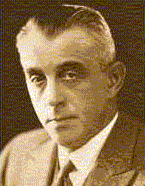Loser's Guide to Life
I saw Seconds (1966) a few evenings ago. Someone recommended it highly, and I was trying to think if I hadn't already seen it at some point. How could I have missed it? And if I had seen it, how come it made no huge impression on me? Having watched the movie, I can say that bits of it do seem familiar, but it has some aggressivley unmemorable features that can cause an erasure through boredom in the viewer's mind.
John Randolph, a typical unhappy businessman who, at times, has a camera attached to his back, is accosted at the station by someone who gives him a scrap of paper with an address on it. Goes home, wife, gets anonymous call, “How would you like to start your life over except in Rock Hudson's body?” He goes to the strange organization, waffles, gets remade, etc. His new life commences. That's very interesting. And then ...
Now played by Rock Hudson, he meets an awful woman on the beach, who encourages him to seize life, and then takes him to an actual neighbourhood Bacchanalia. He dives into this new life with alacrity. But then he hosts one of those parties they used to have in movies of the period: lots of strangers standing around drinking martinis with an unobtrusive (and, in this case, invisible) jazz trio in the background. He gets drunk, becomes unhappy with his new life. And so on. Rod Serling frowns and looks on in faux disappointment, but actually licking his chops.
The theme is very interesting, and both the look of the movie and its pace are above reproach. There are plenty of things to admire. But it is strangely uneven. There are parts that don't work at all. There are bits missing. And there are lost opportunities in sequences that ought to have talked about the story but instead contain nothing but tat.
Parts even struck me as a rush job. There's a startling continuity error where Rock Hudson is given a pillow on the airplane: we see Hudson put the pillow behind his head, we see the hostess smiling at him, and then we turn back to Hudson to find he obviously has no pillow. I quite thought for a moment that this was to herald some kind of mental confusion sequence, but no. It's just a mistake, and a glaring one. Normally that's no big deal, but here it underscores the host of things neglected by the director: what's going on in this man's mind? What happens when you start a new life? What would the sensation be like? Do things look different? The same? How would you feel about that? Do you still like your coffee with two sugars? What? There are all manner of things that ought to happen but don't.
Contrast that with the good dialogue scenes between John Randolph and the owner of the company, or between Hudson and Frances Reid, his former wife. Not only well composed but even daring, trusting the actor's ability to keep the audience transfixed for long seconds with his tormented silence.
Here, as well as I can recall, is the owner of the life-replacement establishment quizzing Randolph on his possible reasons for remaining in his current life, asking if there is anything of value left for him:
“Anything?”
“ ... I have my boat in the summmer ... I ... [jowl twitch]... friends!! ...”
“... Anything at all?”
I think all the acting is remarkable, and John Frankenheimer's work with his actors is the outstanding achievement of this film.
Labels: Cinema
